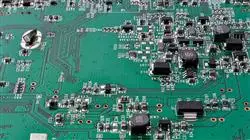University certificate
The world's largest faculty of information technology”
Why study at TECH?
Become a prestigious computer scientist in the field of industrial communication networks and achieve the professional improvement you desire"

This Postgraduate diploma in Communication and Marketing in Electronic Systems Engineering at TECH is designed for IT professionals to acquire that superior knowledge that will allow them to stand out from the rest of the competitors. The program covers many current topics, which are fundamental for the daily work in this field.
In addition, the course develops specialized knowledge on current applications of power electronics, specifically devices that allow variation of the waveform of the electrical signal, known as converters. These devices are present in sectors as varied as domestic, industrial, military and aerospace. For its part, the creation of communication networks is also a fundamental part of this Postgraduate diploma, since it is a key element for the transfer of data between all the elements of an industrial production system; they are the basis of what is known as Industry 4.0. In this way, controllers can communicate with sensors and other instrumentation elements, as well as with management systems, databases and even with services deployed in the cloud.
Another of the fundamental issues of this program is Marketing. It is a great instrument for creating value in industrial companies, in addition to being a key element for their competitiveness in the current environment. It must be taken into account that in order to compete with other companies, it is very important to have market information, create relationships and collaboration networks, so that information sources become a competitive advantage for the company. However, it is even more important to know how to communicate this information and share it at all levels of the organization. For this reason, this section is of fundamental value in the program.
In short, this is a 100% online Postgraduate diploma that will allow students to distribute their study time, not being restricted by fixed schedules or having to move to another physical location, being able to access all the contents at any time of the day, balancing their work and personal life with their academic life.
Delve into the study of this complete program and learn how to create fundamental communication networks in industries”
This Postgraduate diploma in Communication and Marketing in Electronic Systems Engineering is the most complete and up-to-date program on the market. Its most notable features are:
- Practical cases presented by experts in information technology
- The graphic, schematic, and practical contents with which they are created, provide scientific and practical information on the disciplines that are essential for professional development
- Practical exercises where self-assessment can be used to improve learning
- Special emphasis on innovative methodologies in Communication and Marketing in Electronic Systems Engineering
- Theoretical lessons, questions to the expert, debate forums on controversial topics, and individual reflection assignments
- Content that is accessible from any fixed or portable device with an Internet connection
As soon as you enroll in this Postgraduate diploma, you will have direct access to all the theoretical and practical resources”
The teaching staff includes professionals from the information technology sector, who bring their experience to this training program, as well as renowned specialists from leading societies and prestigious universities.
The multimedia content, developed with the latest educational technology, will provide the professional with situated and contextual learning, i.e., a simulated environment that will provide an immersive training experience designed to train for real-life situations.
This program is designed around Problem-Based Learning, whereby the student must try to solve the different professional practice situations that arise throughout the program. This will be done with the help of an innovative system of interactive videos made by renowned experts.
TECH provides you with a multitude of practical cases that will be fundamental to your learning"

This online program will allow you to study at any time and from anywhere in the world"
Syllabus
This Postgraduate diploma in Communication and Marketing in Electronic Systems Engineering at TECH offers students the most up-to-date academic content of the moment, developed by a first class teaching team, with numerous theoretical and practical resources that will highlight the importance of specialization in this field. Undoubtedly, this is a program that will mark a before and after in the training of students, providing them with the necessary knowledge to stand out in the sector. 
A high-level program for professionals seeking excellence”
Module 1. Power Converters
1.1. Power Electronics
1.1.1. Power Electronics
1.1.2. Applications of Power Electronics
1.1.3. Power Conversion Systems
1.2. Converter
1.2.1. Converters
1.2.2. Types of Converters
1.2.3. Characteristic Parameters
1.2.4. Fourier Series
1.3. AC/DC Conversion. Single-Phase Uncontrolled Rectifiers
1.3.1. AC/DC Conversion
1.3.2. Diode
1.3.3. Uncontrolled Half Wave Rectifier
1.3.4. Uncontrolled Full Wave Rectifier
1.4. AC/DC Conversion. Single-Phase Controlled Rectifiers
1.4.1. Thyristor
1.4.2. Controlled Half Wave Rectifier
1.4.3. Controlled Full Wave Rectifier
1.5. Three-Phase Rectifiers
1.5.1. Three-Phase Rectifiers
1.5.2. Controlled Three-Phase Rectifiers
1.5.3. Uncontrolled Three-Phase Rectifiers
1.6. DC/AC Conversion. Single-Phase Inverters
1.6.1. DC/AC Conversion
1.6.2. Single-Phase Square Wave Controlled Inverters
1.6.3. Single-Phase Inverters Using Sinusoidal PWM Modulation
1.7. DC/AC Conversion. Three-Phase Inverters
1.7.1. Three-Phase Inverters
1.7.2. Three-Phase Square Wave Controlled Inverters
1.7.3. Three-Phase Inverters Using Sinusoidal PWM Modulation
1.8. DC/DC Conversion
1.8.1. DC/DC Conversion
1.8.2. Classification of DC/ DC Converters
1.8.3. Control of DC/ DC Converters
1.8.4. Reducing Converter
1.9. DC/DC Conversion. Lifting Converter
1.9.1. Lifting Converter
1.9.2. Reducing-Lifting Converter
1.9.3. Cúk Converter
1.10. AC/AC Conversion
1.10.1. AC/AC Conversion
1.10.2. Classification of AC/ AC Converters
1.10.3. Voltage Regulators
1.10.4. Cycloconverters
Module 2. Industrial Communications
2.1. Real Time Systems
2.1.1. Classification
2.1.2. Programming
2.1.3. Planning
2.2. Communication Networks
2.2.1. Transmission of medium
2.2.2. Basic Configurations
2.2.3. CIM Pyramid
2.2.4. Classification
2.2.5. OSI Model
2.2.6. TCP/IP Model
2.3. Fieldbuses
2.3.1. Classification
2.3.2. Distributed, Centralized Systems
2.3.3. Distributed Control Systems
2.4. BUS
2.4.1. Physical Level
2.4.2. Link Level
2.4.3. Error Control
2.4.4. Components
2.5. CAN or CANopen
2.5.1. Physical Level
2.5.2. Link Level
2.5.3. Error Control
2.5.4. DeviceNet
2.5.5. Controlnet
2.6. Profibus
2.6.1. Physical Level
2.6.2. Link Level
2.6.3. Application Level
2.6.4. Communication Models
2.6.5. System Operation
2.6.6. Profinet
2.7. Modbus
2.7.1. Physical Environment
2.7.2. Access to the Environment
2.7.3. Transmission Series Modes
2.7.4. Protocol
2.7.5. Modbus TCP
2.8. Industrial Ethernet
2.8.1. Profinet
2.8.2. Modbus TCP
2.8.3. Ethernet/IP
2.8.4. EtherCAT
2.9. Wireless Communication
2.9.1. Networks 802.11 (Wifi)
2.9.3. Networks 802.15.1 (BlueTooth)
2.9.3. Networks 802.15.4 (ZigBee)
2.9.4. WirelessHART
2.9.5. WiMAX
2.9.6. Networks Based on Cell Phones
2.9.7. Satellite Communications
2.10. IoT in Industrial Environments
2.10.1. The Internet of Things
2.10.2. IoT Device Characteristics
2.10.3. Application of IoT in Industrial Environments
2.10.4. Security Requirements
2.10.5. Communication Protocols: MQTT and CoAP
Module 3. Industrial Marketing
3.1. Marketing and Analysis of the Industrial
3.1.1. Marketing
3.1.2. Market Understanding and Customer Orientation
3.1.3. Differences Between Industrial Marketing and Consumer Marketing
3.1.4. Industrial Marketing
3.2. Marketing Planning
3.2.1. Strategic Planning
3.2.2. Analysis of the environment
3.2.3. Company Mission and Objectives
3.2.4. Marketing Plan in Industrial Companies
3.3. Marketing Information Management
3.3.1. Knowledge of the Client in the Industrial Sector
3.3.2. Market Learning
3.3.3. MkIS (Marketing Information System)
3.3.4. Commercial Research
3.4. Marketing Strategies
3.4.1. Segmentation
3.4.2. Evaluation and Selection of the Market Objective
3.4.3. Differentiation and Positioning
3.5. Marketing Relations in the Industrial Sector
3.5.1. Creating Relations
3.5.2. From Transactional Marketing to Relational Marketing
3.5.3. Design and Implementation of an Industrial Relationship Marketing Strategy
3.6. Value Creation in the Industrial Market
3.6.1. Marketing Mix and Offering
3.6.2. Advantages of Inbound Marketing in the Industrial Sector
3.6.3. Value Proposal in the Industrial Market
3.6.4. Industrial Purchasing Process
3.7. Pricing policies
3.7.1. Pricing policies
3.7.2. Objectives of Pricing Policies
3.7.3. Price-Fixing Strategies
3.8. Communication and Branding in the Industrial Sector
3.8.1. Branding
3.8.2. Building a Brand in the Industrial Marketing
3.8.3. Stages in the Development of Communication
3.9. Commercial and Sales Function in Industrial Markets
3.9.1. Importance of Commercial Management in Industrial Businesses
3.9.2. Sales Force Strategy
3.9.3. The Figure of the Sales Representative in the Industrial Market
3.9.4. Commercial Negotiation
3.10. Distribution in Industrial Environments
3.10.1. Nature of Distribution Channels
3.10.2. Distribution in the Industrial Sector: Competitive Factor
3.10.3. Types of Distribution Channel
3.10.4. Types of Distribution Channel

Gain in-depth knowledge of Communication and Marketing in Electronic Systems Engineering and be more efficient in your daily work”
Postgraduate Diploma in Communication and Marketing in Electronic Systems Engineering
.
In an increasingly connected world, communication and marketing play a crucial role in the success of any industry, including electronic systems engineering. If you are an engineering professional and want to strengthen your communication and marketing skills, the Postgraduate Diploma in Communication and Marketing in Electronic Systems Engineering from TECH Global University is the perfect program for you. This online program will provide you with the knowledge and tools necessary to develop effective communication and marketing strategies in the field of electronic systems engineering. You will learn to identify market needs, position products and services effectively, and use different communication channels to reach your potential customers. This course is taught in virtual mode, which allows you to study from anywhere and adapt your schedule to your personal and professional needs. You will have the support of professionals specialized in communication and marketing, as well as case studies and relevant examples from the field of electronic systems engineering. Throughout the program, you will explore topics such as market identification and segmentation, the development of branding and positioning strategies, communication management in digital environments, the use of digital marketing tools, and the measurement and analysis of results. You will also learn how to effectively communicate technical concepts to non-specialized audiences.
Study online with TECH, the best digital university in the world
.
This program is aimed at professionals in electronic systems engineering, software engineers, hardware developers and other related roles who wish to strengthen their communication and marketing skills. It is also suitable for entrepreneurs and professionals who wish to start or enhance their business ventures in the field of electronic systems engineering. Upon completion of the Postgraduate Diploma, you will be prepared to develop effective communication and marketing strategies in the field of electronic systems engineering.







